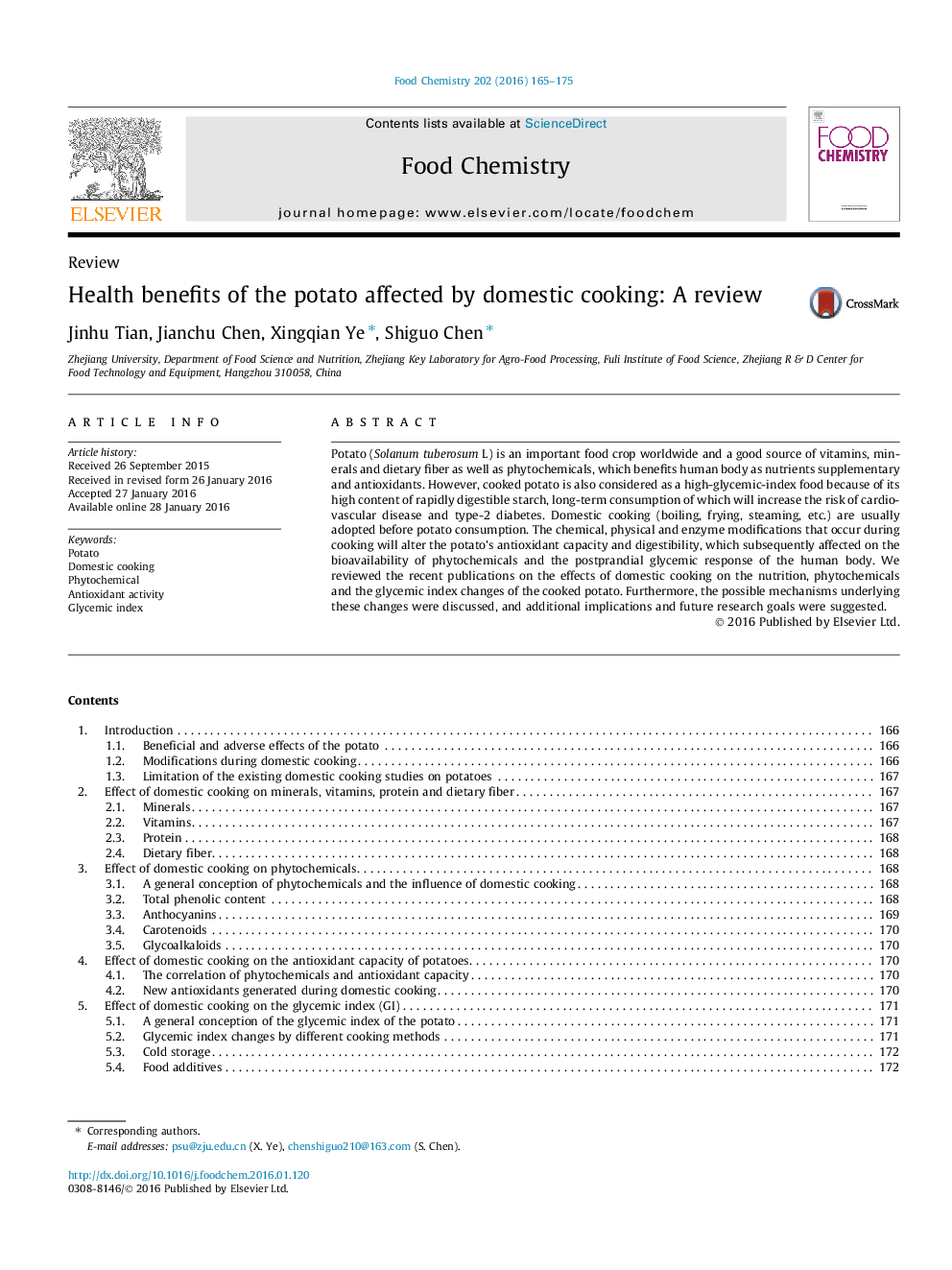| Article ID | Journal | Published Year | Pages | File Type |
|---|---|---|---|---|
| 7588858 | Food Chemistry | 2016 | 11 Pages |
Abstract
Potato (Solanum tuberosum L) is an important food crop worldwide and a good source of vitamins, minerals and dietary fiber as well as phytochemicals, which benefits human body as nutrients supplementary and antioxidants. However, cooked potato is also considered as a high-glycemic-index food because of its high content of rapidly digestible starch, long-term consumption of which will increase the risk of cardiovascular disease and type-2 diabetes. Domestic cooking (boiling, frying, steaming, etc.) are usually adopted before potato consumption. The chemical, physical and enzyme modifications that occur during cooking will alter the potato's antioxidant capacity and digestibility, which subsequently affected on the bioavailability of phytochemicals and the postprandial glycemic response of the human body. We reviewed the recent publications on the effects of domestic cooking on the nutrition, phytochemicals and the glycemic index changes of the cooked potato. Furthermore, the possible mechanisms underlying these changes were discussed, and additional implications and future research goals were suggested.
Related Topics
Physical Sciences and Engineering
Chemistry
Analytical Chemistry
Authors
Jinhu Tian, Jianchu Chen, Xingqian Ye, Shiguo Chen,
